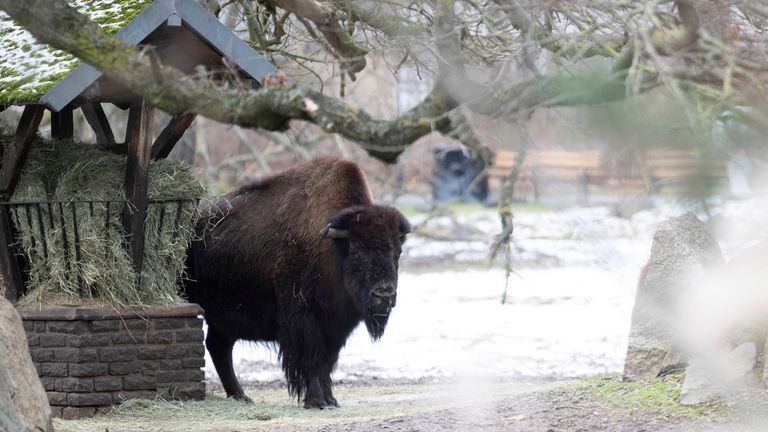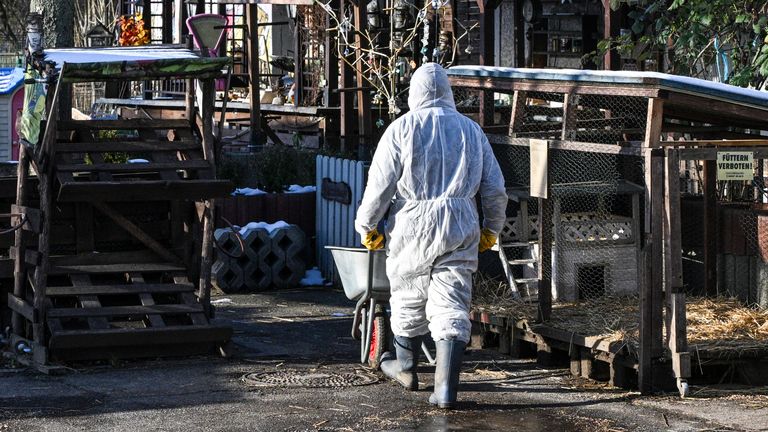
Importing cattle, pigs and sheep into Great Britain from Germany has been banned to prevent the spread of foot and mouth disease.
The ban is in response to a case of the disease being confirmed in a herd of water buffalo in Honow on the outskirts of Berlin on Friday.
It is Germany’s first outbreak of foot and mouth in 36 years and has seen the precautionary slaughter of 55 goats, sheep and cattle on a farm in Brandenburg state that had purchased hay from the buffalo farm.
Politics latest: Chancellor to give statement during market turmoil
Several animal parks, including Berlin Zoo and Tierpark, the German capital’s other zoo, have closed as a precaution.
The UK government said that as well as the import of live cattle, pigs and sheep from Germany being banned, products from those animals would also not be allowed into the UK.
That includes fresh meat, milk and other animal products.
GB health certificates will no longer be issued for animals susceptible to foot and mouth disease, or for their products.
The viral disease poses no risk to human or food safety but is highly contagious in cloven-hoofed animals such as cows, sheep and pigs.
There are no cases in the UK currently but the UK’s chief veterinary officer, Dr Christine Middlemiss, said the UK would use “all measures to limit the risk incursion and spread of this devastating disease”.
In 2001, the disease led to the culling of millions of animals in the UK and the loss of billions of pounds, prompting a crisis in British farming.
There were 2,000 cases but each case meant a farm having to kill and burn all its livestock, with more than six million sheep, cattle and pigs slaughtered.
Read more:
UK averted most COVID deaths with vaccine in Europe, inquiry hears
Dr Middlemiss said: “We remain in constant contact with German counterparts to understand the latest situation following their confirmation of a single case of foot and mouth disease.
“We have robust contingency plans in place to manage the risk of this disease to protect farmers and Britain’s food security, which means using all measures to limit the risk incursion and spread of this devastating disease.
“I would urge livestock keepers to exercise the utmost vigilance for signs of disease, follow scrupulous biosecurity and report any suspicion of disease immediately to the Animal and Plant Health Agency.”
Wales’s chief veterinary officer, Richard Irvine, urged livestock owners to remain at “the highest levels of vigilance” to keep animal disease out of Wales.
The Department for Environment, Food and Rural Affairs (DEFRA) said foot and mouth can cause significant economic losses to farmers as animals can have reduced milk yields and other countries will not allow them to be imported.
It warned farmers to be aware that clinical signs vary depending on the animals.
In cattle, the key signs are sores and blisters on the feet, mouth and tongue with potentially a fever, lameness and a reluctance to feed.
Sheep and pigs tend to show signs of lameness with potential blistering.
